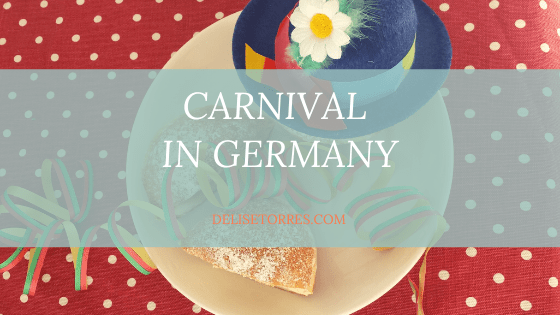This is part of my ongoing series on surviving in Germany based on my own experiences.
New Year’s Eve in Germany is called Silvester in honor of Pope Silvester I who died on December 31st. Like many other countries, Germany has its own New Year’s Eve traditions. Here are the 6 most important ones.
1. Lucky Charms
Germans give figurines or food shaped as these lucky charms as gifts to bring good luck in the new year.

Chimney Sweep
A household with a clogged chimney couldn’t prepare food or heat their home. Therefore, the chimney sweep became symbolic as a bringer of good luck.
Pig
The pig has always been a sign of prosperity and wealth, as well as a symbol of fertility and strength. The German phrase “Schwein gehabt”, literally “had a pig”, means to have good luck.
Germans give away marzipan pigs as presents or eat pork for New Year’s Eve to bring good luck.
2. Dinner for One

Dinner for One is a British comedy sketch written for the theater. In 1963, the German television station NDR recorded an 18-minute clip in the original English with a short German introduction and began airing it in Germany. Since then, it has become an integral part of New Year’s Eve.
In 1988, the Guinness Book of Records listed Dinner for One as the world’s most frequently repeated television production. Curiously, in Great Britain, the sketch and its famous quote (shown above) are virtually unknown.
3. Foods for Wealth

Carp
This fish is mostly available during the fall and winter months making it a traditional dish for Christmas and New Year’s Eve. An old custom is to put a piece of scale inside the wallet with the belief that it will keep it full of money for the rest of the year.
Lentil Soup
Since the shape of lentils reminded people of pennies, eating lentil soup between the years supposedly keeps money secure. And if you don’t eat all the soup in your plate, there will also be no hunger.
Sauerkraut
Eating Sauerkraut on New Year’s Day will also ensure that wealth won’t run out. Traditionally, Germans eat it with salted pork cutlet and mashed potatoes (Sauerkraut
4. Food for the Wait
Since the wait for midnight is long, many Germans enjoy long meals that are easy to prepare. The most common of these are Raclette and Fondue.

Raclette is a small electric table-top grill where each guest has his own pan to heat up their meal. There is no set recipe which makes it easy to prepare. You can use leftovers, canned foods, pre-cooked potatoes, vegetables, fruits, bread, and of course Raclette cheese to melt over everything. Some Raclette grills come equipped with plates on top where you can cook meat.

Fondue uses a pot filled with melted cheese or chocolate where each person dips pieces of bread, vegetables, or fruits using long-stemmed forks. The typical New Year’s Eve meal in Germany involves a pot of heated broth where each guest dips thinly-sliced pieces of meat. To accompany the meat, Germans serve various dips and bread.
5. Divining the Future

Molybdomancy is an old tradition of divination using molten metal. The person places a piece of metal on a spoon and melts it over a candle then pours it into a cup of cold water. As the metal hardens, it forms a shape. Using a guide, the person interprets the shape, which will be the fortune that awaits him or her in the new year
In the past, people used pieces of lead which is now forbidden due to health risks. But the tradition continue with the use of zinc or wax (ceromancy) instead.
6. Lighting Fireworks

At midnight, Germans go outside and light fireworks, no matter how cold it is. This was surprising to me since we also do it in Puerto Rico (where it’s warm) but I missed it while I lived in the US.
German law allows the sale of fireworks of category F2 only in the last three working days of the year and their use all day on December 31 and January 1.
Lighting fireworks is said to scare bad spirits away and bring good
Growing up in Puerto Rico, I’ve always had the tradition of eating 12 grapes at midnight (one for each month) which is supposed to bring good luck (a tradition passed down from Spain). I was also taught to have a clean house and no dirty laundry in order to ring in the New Year with a clean, fresh start. After meeting my German husband, I’ve now incorporated watching Dinner for One and eating Sauerkraut
What are your favorite New Year’s Eve traditions? Share in the comments below.











2 Responses
Hi Delise!
Mi nombre es Solimar y soy puertorriqueña. Aún vives en Alemania? Llegue a tu post buscando información sobre actividades para despedir el año en Alemania. Estaremos por Europa a finales de diciembre y la despedida de año estaremos en Alemania y no sabemos que hacer!
Cualquier recomendación es bienvenida!
Gracias por contactarme! Todo depende de en qué ciudad te vas a quedar. Algunas, como Berlín, organizan eventos públicos con música y fuegos artificiales. Yo pues siempre lo he celebrado en mi casa con mi familia, así que no estoy muy segura.